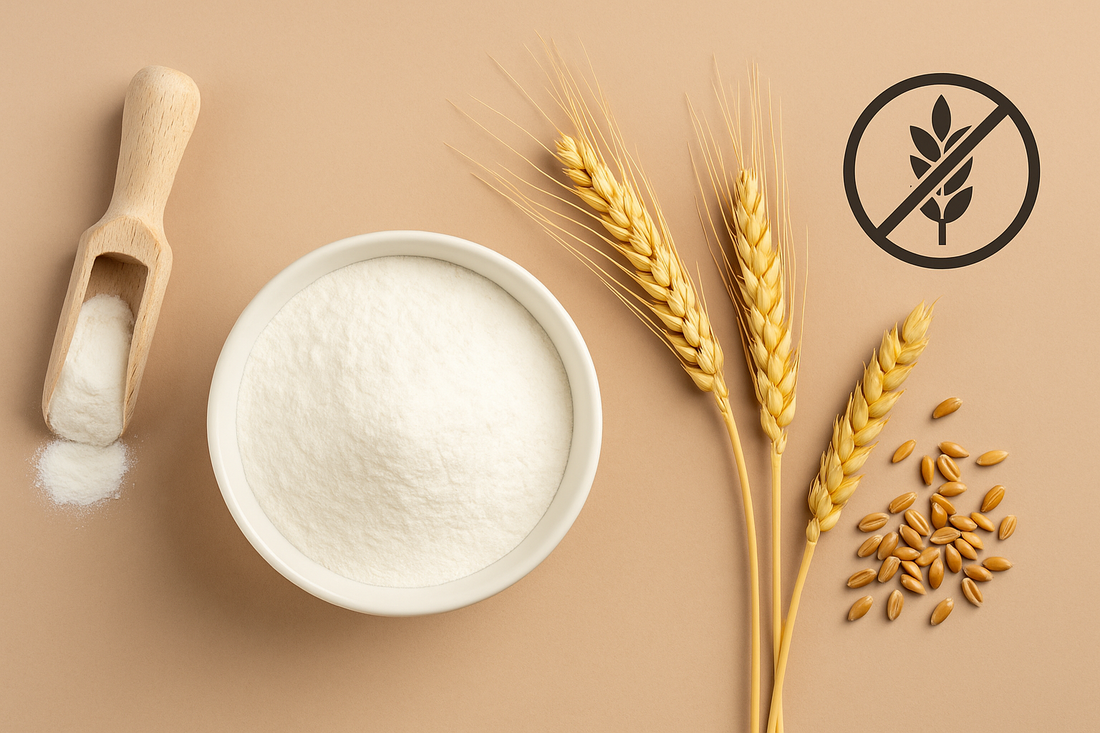
Does maltodextrin contain gluten?
Share
We often read that maltodextrin is derived from wheat... so the question of gluten inevitably arises. But is it really incompatible with a gluten-free diet? Let's take a look at the situation and put an end to the usual confusion.
A plant origin sometimes a source of confusion
Maltodextrin is a carbohydrate made from a variety of starch sources: wheat, corn, potato and rice. This diversity of origin can be confusing, especially if you keep a close eye on your gluten intake.
Many people think that if an ingredient is derived from wheat, it must contain gluten. But it's not quite that simple. It all depends on the transformation process used. Because once extracted and processed, starch loses the vast majority of its initial components, including gluten, if any.
This explains why the presence of maltodextrin in a supplement does not automatically mean that it contains gluten. You have to go a little further than simply reading the plant source.
In reality, plant origin is not enough to predict tolerance; it's the quality of the industrial process that makes all the difference, hence the importance of choosing manufacturers who are transparent about their methods.
A process that eliminates traces of gluten
During the production of maltodextrin, starch undergoes a hydrolysis process that transforms it into simpler glucose chains. This treatment almost entirely eliminates proteins, including gluten when originally present.
The vast majority of maltodextrins on the market are therefore considered gluten-free, even when derived from wheat. Residual quantities are often below the thresholds defined for certified gluten-free products. This makes them compatible with a gluten-free diet in many cases, provided you read the labels carefully.
Serious brands are careful to select maltodextrins from guaranteed allergen-free or purified sources. You can find this type of formulation in our Energy Powder for energy and performance supplements, with a detailed and accessible composition.
Note that a quality supplement will clearly display its certifications, which is the best way to avoid any unpleasant surprises.
Choosing clear supplements when avoiding gluten
If you're gluten-intolerant or following a gluten-free diet, always take care. Even if maltodextrin is often compatible, not all supplements are created equal.
Start by spotting products that clearly specify the source of the starch used: "corn ", "pot ato " or "gluten-free " are useful indications. Also check the label for allergens or traces of cereals. And if transparency isn't there, it's best to pass.
Some formats, like our Super Shotformulated without major allergens and containing maltodextrin, caffeine and taurine, offer a precise and rapid energy supply, compatible with a well-structured gluten-free routine.
In addition to guaranteeing the absence of gluten, this type of product helps maintain energy during exercise, while avoiding unnecessary ingredients or those at risk for sensitive individuals.
